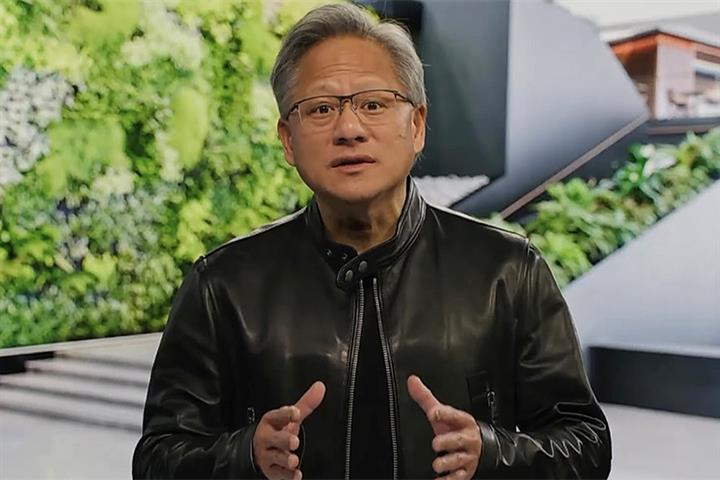 Nvidia to Rent Out AI Supercomputing Power to Chinese Companies, Founder Says
Nvidia to Rent Out AI Supercomputing Power to Chinese Companies, Founder Says(Yicai Global) March 22 -- Nvidia will lease the artificial intelligence supercomputers used to develop ChatGPT-like tech to Chinese customers through Chinese cloud service providers that use specially tailored chips, the US chipmaking giant’s founder told Yicai Global today.
Nvidia is renting out its DGX AI supercomputing system to businesses for USD37,000 per month to drive the latest AI boom led by large language models, Jensen Huang, who is also chief executive officer, said at the tech summit GPU Technology Conference yesterday.
"We are partnering with cloud service providers in Europe and the US to offer the capabilities of Nvidia's DGX supercomputer system, powered by eight of its flagship A100 or H100 chips,” he said.
In China, which is affected by a US ban on the export of graphic processing units with chip-to-chip data transfer rates of under 600 gigabits a second, Nvidia has developed specially tailored Ampere and Hopper chips, namely the A800 and H800, Huang said. The data transfer rate of the A800 is around 400 gigabits per second.
These will be used by the country's three biggest cloud service providers, Alibaba Group Holding, Tencent Holdings and Baidu, to provide top-notch system services, Huang said. With the best services, and there will be opportunities for Chinese startups to develop their own large language models, he added.
Low computing power has been identified by market insiders as a major obstacle holding back China's ChatGPT-like bot developers.
Nvidia dominates the AI chip industry and it has helped many firms, including tech giant Microsoft, build the massive systems needed to run large language models. The California-based company said at the GTC event that it is supplying US computer giant Oracle with access to a DGX supercomputer powered by as many as 32,000 Nvidia chips.
The huge interest in ChatGPT has driven up demand for chips. Nvidia’s stock [NASDAQ:NVDA] has gained more than 77 percent in value this year so far, soaring to a market capitalization of USD650 billion, five times that of rival Intel.
Editor: Kim Taylor